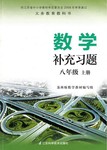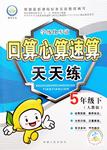题目内容
完型填空
Some years ago when I was in my first year in college, I heard Salome Bey sing for the first time. The moment was exciting. Salome’s _________ filled the room and brought the theater to life. I was so _________ that I decided to write an article about her.
I _________ Salome Bey, telling her I was from Essence magazine, and that I wanted to meet her to talk about her career. She _________ and told me to come to her studio next Tuesday. When I hung up, I was scared out of mind. I _________ I was lying. I was not a writer at all and hadn’t even written a grocery list.
I interviewed Salome Bey the next Tuesday. I sat there _________, taking notes and asking questions that all began with, “Can you tell me. . . ? ”I soon realized that _________Salome Bey was one thing, but writing a story for a national magazine was just impossible. The _________ was almost unbearable. I struggled for days _________ draft(草稿)after draft. Finally I put my manuscript(手稿)into a large envelope and dropped it into a mailbox.
It didn’t take long. My manuscript_________. How stupid of me! I thought. How could I_________ in a world of professional writers? Knowing I couldn’t_________the rejection letter, I threw the unopened envelope into a drawer.
Five years later, I was moving to California. While_________my apartment, I came across the unopened envelope. This time I opened it and read the editor’s letter in _________:
Ms Profit,
Your story on Salome Bey is fantastic. Yet we need some_________materials. Please add those and return the article immediately. We would like to_________your story soon.
Shocked, it took me a long time to_________ . Fear of rejection cost me greatly. I lost at least five hundred dollars and the chance of having my article appear in a major magazine. More importantly, I lost years of _________writing. Today, I have become a full-time writer. Looking back on this _________, I learned a very important lesson: You can’t _________to doubt yourself.
1.A. joy B. voice C. speech D. smile
2.A. proud B. active C. satisfied D. moved
3.A. visited B. emailed C. phoned D. interviewed
4.A. agreed B. refused C. hesitated D. paused
5.A. replied B. discovered C. explained D. knew
6.A. seriously B. patiently C. nervously D. quietly
7.A. blaming B. fooling C. inviting D. urging
8.A. hardship B. Failure C. comment D. pressure
9.A. with B. by C. on D. in
10.A. disappeared B. returned C. spread D. improved
11.A. compare B. Struggle C. survive D. compete
12.A. ignore B. deliver C. face D. receive
13.A. decorating B. repairing C. cleaning D. leaving
14.A. surprise B. anxiety C. horror D. trouble
15.A. subjective B. detailed C. private D. complex
16.A. broadcast B. create C. publish D. assess
17.A. recover B. prepare C. escape D. concentrate
18.A. energetic B. Endless C. typical D. enjoyable
19.A. experience B. Success C. benefit D. accident
20.A. attempt B. afford C. expect D. pretend
 同步练习河南大学出版社系列答案
同步练习河南大学出版社系列答案 同步练习西南师范大学出版社系列答案
同步练习西南师范大学出版社系列答案 补充习题江苏系列答案
补充习题江苏系列答案 学练快车道口算心算速算天天练系列答案
学练快车道口算心算速算天天练系列答案用所给短语的适当形式填空,其中两项是多余的。
have fun with feast one’s eyes on play tricks on in memory of keep one’s word remind…of… attach….to break up pay attention to turn up look forward to set off for |
1.Our government set up a museum________________the people who died in the war.
2.___________________each other on April Fool’s Day is not our custom that we shouldn’t advocate.
3.Our English teacher is so busy with his work that he spends little time __________________
his own child.
4.The tourist _________________the breathtaking scenery of the West Lake in spring and forgot to go home.
5.We________________ Torreya Grandis Ridge with our teachers’ accompany on April 9.
6.The old picture_________me_________the sweet memory at university.
7.I promised to give my daughter a gift and I must _______________.
8.My mother often _________the importance _________being an upright person.
9.It was half past seven in the morning and one of my classmates finally________________at the school gate.
10.The day I have been comes at last.

